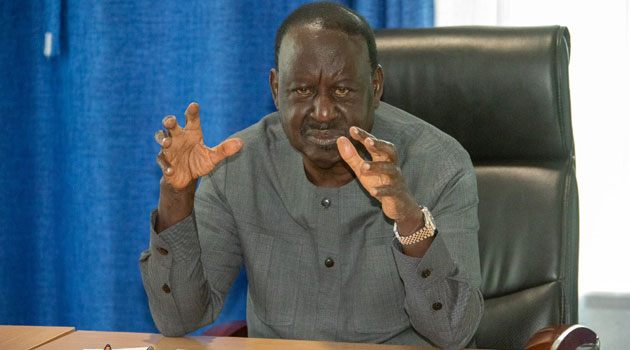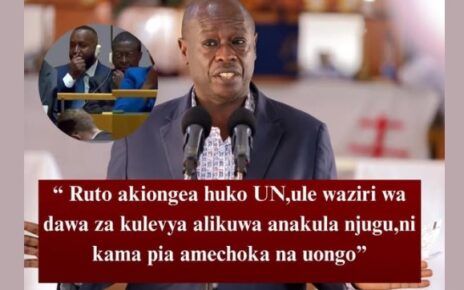Raila Odinga’s absence from the public limelight has set off a storm of speculation about his health. On social media, the 80-year-old ODM leader has been the subject of endless rumours — some claiming he is hospitalised abroad, others alleging he has travelled to Europe for specialized treatment or that doctors have advised him to slow down.
Then came the official denials.
ODM, in a strongly worded statement, dismissed the rumours as “political theatre,” accusing Deputy President Rigathi Gachagua, Wiper leader Kalonzo Musyoka, and their allies of spreading falsehoods — even using AI-generated images to paint Raila as gravely ill.
Raila’s spokesman, Dennis Onyango, also moved to quell the growing anxiety, saying the veteran politician was in good health and had merely travelled for one of his regular trips.
“He is not indisposed, as prayed for by his frustrated opponents,” Onyango stated, describing Raila as a man who has always been open about his health.
But the clarifications did not calm the speculation. If anything, they deepened it.
Why does the health of Africa’s political leaders always attract secrecy, denial, and wild rumours? Why can’t public officials — paid with taxpayers’ money — be transparent about their health?
A Familiar Pattern
Across Africa, the health of top leaders has long been shrouded in mystery.
In 2010, Nigeria’s late President Umaru Musa Yar’Adua disappeared from public view for months. Officials insisted he was “resting,” even as the nation was consumed by uncertainty. When he eventually died, Nigerians felt betrayed — not just by his passing, but by the secrecy that surrounded it.
Zambia’s Michael Sata followed the same script. As his health deteriorated, his ministers brushed off concerns, claiming he was “just tired.” When he died in a London hospital in 2014, even members of his Cabinet were shocked.
In Tanzania, the late President John Magufuli vanished from public view in 2021 amid global concern. Officials claimed he was suffering from “sinus infections.” Days later, the news of his death confirmed what many had suspected all along.
It’s a pattern that repeats itself: leaders fall ill, aides issue denials, rumours intensify, and the truth only surfaces when it’s too late.
Meanwhile, in the West, transparency is standard. In the United States, the White House routinely releases detailed medical summaries of the President’s health. In the UK, doctors openly brief the public after a Prime Minister’s hospital stay. But in Africa, even the mildest ailment becomes a state secret.
Why is it easier to know the health of a U.S. President than that of an African leader?
Why the Secrecy?
Part of the problem lies in Africa’s political culture — one that treats power as sacred and illness as weakness. Many leaders fear that revealing health challenges could trigger political instability or embolden rivals. Others believe the public has no right to know.
But this secrecy has consequences.
It breeds mistrust, fuels conspiracy theories, and opens the floodgates for misinformation. Ironically, it is the same fake news that leaders later condemn, yet they help create it through silence.
At 80, Raila remains one of Kenya’s most influential figures. His words still sway national debates, and his political endorsement can shift entire regions. That’s why any unexplained absence from the public eye instantly raises alarm.
ODM maintains that Raila has always been candid about his health, recalling his past disclosures — from undergoing surgery in 2010 to recovering from Covid-19 in 2021. Still, many Kenyans feel uneasy, not necessarily because he is unwell, but because of how vaguely the matter has been handled this time.
Observers argue that in an era dominated by social media and AI-generated misinformation, transparency is no longer optional — it’s an obligation.
Whether it’s Raila, Magufuli, Yar’Adua, or Sata, African leaders seem trapped in the same tragic cycle — hiding behind silence, secrecy, and spin. In a continent where presidents have disappeared, died, or resurfaced without explanation, public trust has worn thin.
It’s time Africa’s leaders understood a simple truth: honesty about health does not weaken leadership — it strengthens it.
Because in the end, rumours only thrive in the dark.



